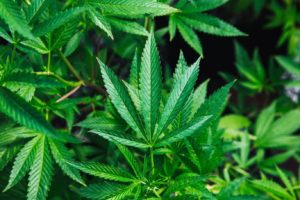Farm Bill Opens Door to CBD and New Opportunities for Cannabis Growers

The 2018 Farm Bill signed into law by President Trump on December 20, 2018 legalized the sale and cultivation of industrial hemp at the federal level. Industrial hemp is defined as cannabis that contains THC, the psychoactive compound found in cannabis, of 0.3 percent or less. The new law also amends federal drug scheduling to exclude industrial hemp from the term marijuana. Industrial hemp is no longer considered a Schedule I controlled substance according to federal law.
CBD, the other major extract of the cannabis plant which has proven commercially successful in its own right, falls within the definition of “industrial hemp” and is now legal under federal law. Connecticut’s law concerning industrial hemp – and, therefore, CBD – simply adopts the definition of industrial hemp supplied by federal law, meaning CBD is legal under federal and Connecticut state law. See Conn. Public Act No. 15-202.
Despite the 2018 Farm Bill’s removal of what was perhaps the most significant barrier to the viability of the legal hemp and CBD industry, there remain substantial obstacles for those interested in cultivating and selling:
A) States must enact new legislation before farmers can begin to grow hemp.
States must create plans to license and regulate the cultivation of industrial hemp and obtain USDA approval. Creation and passage of new state legislation to comply with the 2018 Farm Bill will take several months. The speed with which the states act is likely to be dependent on each state’s economic interest in industrial hemp cultivation, with large agriculture states likely to be experiencing greater pressure from constituents and lobbyists in favor of implementing a USDA-compliant plan for industrial hemp cultivation. For example, Senate Majority leader Mitch McConnell of Kentucky was a major proponent and driving force behind the 2018 Farm Bill, which will be a tremendous benefit to his state, which has already run hemp pilot programs, giving Kentucky farmers an early leg up over those in other states. One would expect that Kentucky will be among the first states to enact a USDA-compliant plan to allow its farmers to begin growing industrial hemp.
B) CBD remains subject to strict FDA regulations.
CBD has undergone substantial clinical testing and approved by the FDA as an active ingredient in a drug named Epidiolex, used for treating epileptic seizures. As a drug ingredient, it is illegal to include pure CBD extract in a food or to market it as a dietary supplement. On the other hand, hemp oil, which contains a variety of industrial hemp extracts with CBD being just one among them, would not be considered an active ingredient in a drug. CBD cannot be extracted in its pure or raw form and then sold as a food or dietary supplement, where it is marketed by its CBD content.
Additional consideration must be given to manufacturing processes, labeling, and advertising to ensure compliance with FDA and other federal regulations of industrial hemp. Prospective industrial hemp growers, manufacturers, and marketers are encouraged to consult an attorney for guidance.






